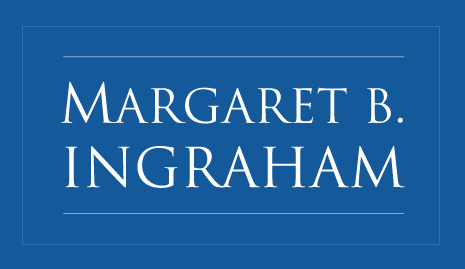Poems
OVERLOOKING SHENANDOAH
“Please don’t get close to fawns lying curled
and still. . . . They can be easily separated from their mothers.”
—Shenandoah Overlook, Summer 2002
Even out beyond this fawning season
They still must lean upon their own
Keen sense of reckoning
To appraise each unforeseen approach —
Ours or cunning snake’s
Or sudden thunderhead’s
Or vagrant lightning bolt’s.
For such are the ways
Of these blue slopes:
And how the redtails hover
Inside the wind-banked troughs;
And how softly the does move
To rouse callow ones to cover;
How moss cleaves to the west
Face of the trunks like men
Cling closely to their lore.
There are no clear divisions here
Where elevations gradually descend
And range extends beyond sheer overlook;
No easy ways to separate mere mists
From Shenandoah’s dawn
Or drowsy warble from the vireo
Or doe from spotted fawn.
RESEMBLANCE
These are the perspectives from the dunes:
first, after dawn’s terns have flown
black cormorant owns the whole horizon,
plunges headlong into the roiling surf,
and neatly plucks a slender fish
that for an instant on the surface
flails, a sterling flash, in the blaze
of noon sun’s harsh broad glare;
and there, in the same place by night,
the moon makes light of midday scene
and over the dark serene prospect
casts down near celestial beams,
trailing myriad minute specks
that lay soft silver crescents
across reflective breaker caps;
now here, atop the great sand hill,
I am drawn to wondering
how just a single fleck of glitter
that moon casts on pitching waves
can so perfectly resemble
the last desperate twitch and jitter
of one silent dying fish.
From the dunes at distant ends
of these spectral lights
I have seen them mirror dancing,
vying for attention once again,
those ancient estranged twins:
the fleet brazen one named terror
and the stunning one called awe.
CROSSING
Saturday I went out early, hoping to save
my ailing garden from the clutch of drought,
and focused as I was on the parched leaves
and the browning grasses, I still heard
the whirring of the hummingbird
as he made his easy passes between
the limbs of maple and crab apple,
and caught a quick iridescent flash
before he darted behind the ash, around
the pine and climbed completely out of sight.
Just before fall of dusk, it must have been,
I went out again to look for summer clouds
or any sign at all of rain and at about
the height I’d witnessed the hummer’s fading
I saw that one great blue heron moving
without sound, deliberate and majestic,
like some crown royalty, avian queen or king
of the close realm of wetlands and of open air,
crossing from here to there mysteriously.
So it was at day’s end, as at its beginning,
that they appeared so gracefully above
my small place of dust and dying shrub—
a huge heron and a minute ruby throat—
the greater and the lesser of the birds,
neither one expected, and neither one
of them known either for sustenance
or for song, and yet that day they were
for me both sweet manna on the wing
and melody beyond any longing.
VANISHED LIGHT
The wooden point of her brush
Etches hieroglyphics
Into the damp paint
Of her canvas:
Layers planed in new colors
Each time she imagines earth
Opening like a quartered orange
To bare its sections,
The strata she lays flat
With facile strokes.
Perspective shifts like the hills
When the clouds move
Each time she squeezes new oil
From old tubes
To rework definitions,
Marks she makes
In the studied space
Between umbers
Where shadows always fall back
After vanished light.
Her eye, the brush, her hand
Are three points of the prism
Translating white to spectrum
And ordering all the lines
To reshape the entire scheme
Of time and tint and distance.
FAMILY ALBUM
Each time she opens the tattered book
she finds herself drawn in
by the angle of her father’s chin
and his before him
and how clearly even then
the dark-eyed boy gazed at the window
in a way that let her know
he longed to go, to leave
that set of jaw, that olive skin,
that name he shared with generations.
Each time, she studies once again
the subtle interplay of vision and of sight,
remembers how she pondered even then
what every turn of face might mean
and just what might become of him
when age had closed the shutter
and the only place to look
was in.
DRAKE
Even as spring
snails across the pond
I see the mallard stand
in the deepening hollow
without a hen.
And I imagine
when summer dries the meadow
he alone will go
to search another place
to satisfy his twilight longings.
But night and then dawn
passing again and again
I see that lone drake
standing still in the hollow.
And I trust this time
when the clouds clear
he will take wing
sensing finally what light to follow
to navigate the passage
of a narrow season,
explore remoter realms
of solitude.
DIVINUM MYSTERIUM
It is all about light:
the way it rises and it rests
the way it can distinguish
a forest from its trees
and dissect the delicate spaces
between the limbs and leaves
and put soft shadows down
along the woodland floor.
It is all about light:
the way it seeks a silhouette
the way it can transform
the rough and round
to smooth and plain
and create a clean horizon
with the indelible stain
that makes perspective black and white.
It is all about light:
the way it carries itself
the way the distant stellar beams
regardless of how slight
refuse to take their cover
in the heavy shroud of night
the way even the smallest flame
can push the darkness out.
In the beginning
and in the end
it is all about light.
